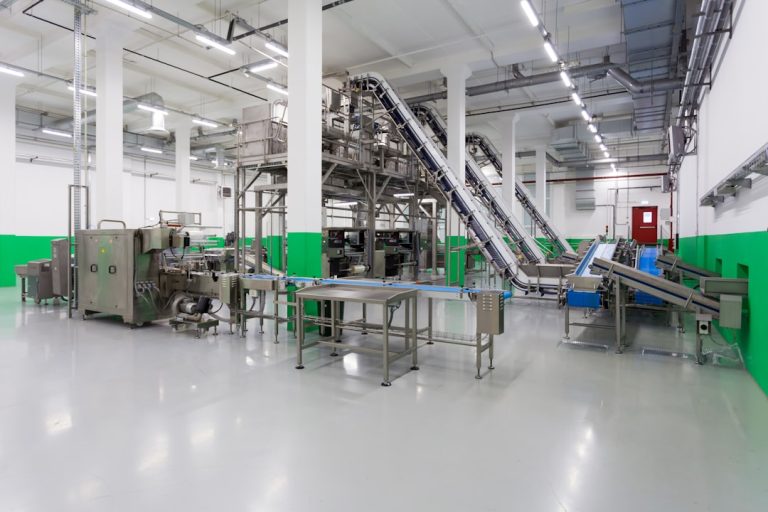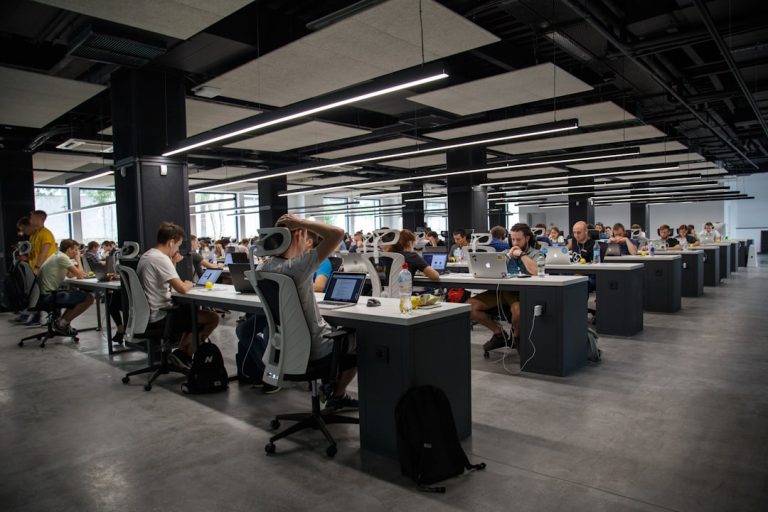
In an increasingly complex world, the role of security guards has become paramount in safeguarding individuals, property, and information. Security guards serve as the first line of defense against potential threats, ranging from theft and vandalism to more serious criminal activities. Their presence not only deters criminal behavior but also instills a sense of safety and security among the public.
In various settings, such as shopping malls, corporate offices, and residential communities, security guards play a crucial role in maintaining order and ensuring that safety protocols are followed. Their vigilance and proactive measures can prevent incidents before they escalate, making them indispensable in today’s society. Moreover, the importance of security guards extends beyond mere physical presence.
They are often trained to handle emergencies, including medical situations, fire outbreaks, and natural disasters. Their ability to respond swiftly and effectively can save lives and minimize damage. In high-stakes environments like airports or large public events, security personnel are essential for crowd control and emergency response coordination.
The multifaceted nature of their responsibilities underscores the critical role they play in fostering a secure environment for everyone.
Key Takeaways
- Security guard occupations play a crucial role in maintaining safety and security in various settings, including commercial, residential, and public spaces.
- Proper training and education are essential for security guards to effectively handle emergency situations, conflict resolution, and use of security equipment.
- Security guards are responsible for monitoring and patrolling designated areas, enforcing rules and regulations, and responding to security incidents.
- There are various types of security guard occupations, including armed guards, corporate security officers, event security, and transportation security officers.
- Security guards face challenges and risks such as physical confrontations, exposure to hazardous materials, and long hours, making it important for them to stay vigilant and alert at all times.
Training and Education for Security Guards
The pathway to becoming a security guard typically involves a combination of formal education and specialized training. While many positions require only a high school diploma or equivalent, additional certifications can significantly enhance a candidate’s employability. Various training programs are available that cover essential topics such as conflict resolution, emergency response, and legal regulations pertaining to security work.
These programs often include both classroom instruction and practical exercises, allowing aspiring security guards to develop the necessary skills to perform their duties effectively. In addition to basic training, many employers prefer candidates who have completed advanced courses or obtained certifications from recognized organizations. For instance, the International Foundation for Protection Officers (IFPO) offers a range of certifications that focus on different aspects of security management.
These credentials not only provide guards with a deeper understanding of their responsibilities but also demonstrate their commitment to professionalism in the field. Continuous education is also vital; as new technologies and methodologies emerge, security personnel must stay informed to adapt to changing circumstances and maintain high standards of service.
Duties and Responsibilities of Security Guards

The duties of security guards can vary widely depending on their specific roles and the environments in which they operate. Generally, their primary responsibilities include monitoring premises to prevent unauthorized access, conducting regular patrols, and ensuring that safety protocols are adhered to. In commercial settings, security guards may be tasked with managing access control systems, checking identification, and monitoring surveillance cameras to detect suspicious activities.
Their keen observation skills are crucial in identifying potential threats before they materialize. In addition to preventive measures, security guards are often responsible for responding to incidents as they occur. This may involve intervening in disputes, assisting individuals in distress, or contacting law enforcement when necessary.
Documentation is another critical aspect of their role; guards must maintain accurate records of incidents, observations, and any actions taken during their shifts. This information is vital for investigations and can serve as evidence in legal proceedings. The multifaceted nature of their responsibilities requires security guards to be adaptable, resourceful, and capable of making quick decisions under pressure.
Types of Security Guard Occupations
| Occupation | Description |
|---|---|
| Unarmed Security Guard | Responsible for monitoring and patrolling designated areas to prevent theft, violence, or infractions of rules. |
| Armed Security Guard | Trained to carry and use firearms to protect property, assets, or individuals from potential threats. |
| Security Supervisor | Oversees and coordinates the activities of security staff, ensuring that all security protocols are followed and maintained. |
| Event Security Guard | Provides security services at events, such as concerts, sports games, or festivals, to ensure the safety of attendees and prevent disturbances. |
The security industry encompasses a diverse range of occupations tailored to meet the specific needs of various sectors. One common type is the retail security guard, who focuses on preventing theft and ensuring customer safety within stores. These guards often work closely with store management to develop strategies for loss prevention and may engage in undercover operations to identify shoplifters.
Corporate security guards operate in office environments, where they protect company assets and ensure the safety of employees. Their duties may include monitoring access points, conducting background checks on visitors, and implementing emergency response plans. Another specialized role is that of a personal security officer or bodyguard, who provides protection for high-profile individuals such as celebrities or executives.
This position requires extensive training in defensive tactics and threat assessment. Event security personnel are also crucial in managing large gatherings such as concerts or sporting events. They are responsible for crowd control, ensuring compliance with safety regulations, and responding to emergencies that may arise during the event.
Challenges and Risks Faced by Security Guards
Despite the essential role they play, security guards face numerous challenges and risks in their line of work. One significant concern is the potential for violence; guards often find themselves in confrontational situations where they must de-escalate conflicts or intervene in criminal activities. This can expose them to physical harm, particularly in high-crime areas or during late-night shifts when fewer people are around.
Additionally, the nature of their work can lead to mental health challenges. The constant vigilance required can result in stress and fatigue, which may affect their overall well-being. Security guards often work long hours with irregular schedules, leading to burnout over time.
Furthermore, they may encounter traumatic situations that can have lasting psychological effects. Employers must recognize these challenges and provide adequate support systems to help guards manage stress and maintain their mental health.
Technology and Innovation in Security Guard Occupations

The integration of technology into the security industry has transformed how security guards perform their duties. Advanced surveillance systems equipped with artificial intelligence (AI) capabilities allow for real-time monitoring and analysis of potential threats. These systems can detect unusual behavior patterns or identify individuals based on facial recognition technology, significantly enhancing situational awareness for security personnel.
Mobile applications have also revolutionized communication within the industry. Security guards can now use smartphones or tablets to report incidents instantly, access emergency protocols, or communicate with team members seamlessly. This immediacy improves response times during emergencies and fosters better coordination among security teams.
Additionally, drones are increasingly being utilized for surveillance purposes in large areas such as stadiums or industrial sites, providing an aerial perspective that enhances overall security measures. As technology continues to evolve, so too will the skill sets required for security personnel. Guards must be adept at using these tools effectively while also maintaining a human touch in their interactions with the public.
The balance between technological reliance and personal engagement will be crucial in shaping the future landscape of security occupations.
Career Opportunities and Advancement in the Security Guard Industry
The security guard industry offers a variety of career paths for individuals seeking advancement opportunities. Many entry-level positions serve as stepping stones toward more specialized roles within the field. For instance, a security guard may start as a patrol officer but later transition into supervisory roles or management positions within a security firm.
With experience and additional training, they can move into areas such as loss prevention management or corporate security administration. Professional development is encouraged within the industry; many employers provide ongoing training programs that allow guards to enhance their skills and knowledge base. Networking opportunities through industry associations can also facilitate career growth by connecting individuals with mentors or job openings in higher-level positions.
Furthermore, pursuing certifications from recognized organizations can bolster a guard’s credentials and make them more competitive in the job market.
The Future of Security Guard Occupations
As society continues to evolve, so too will the landscape of security guard occupations. The increasing prevalence of technology will likely lead to more sophisticated roles that require a blend of technical expertise and interpersonal skills. Security personnel will need to adapt to new tools while maintaining their core responsibilities of protecting people and property.
Moreover, as global concerns about safety grow—whether due to crime rates or public health crises—the demand for skilled security professionals is expected to rise. This trend will likely result in more comprehensive training programs that address emerging threats such as cybercrime or terrorism. The future may also see greater collaboration between private security firms and law enforcement agencies to create a more integrated approach to public safety.
In conclusion, the evolution of security guard occupations reflects broader societal changes and technological advancements. As these professionals continue to adapt to new challenges and opportunities, their role will remain vital in ensuring safety and security across various environments.
If you are interested in learning more about occupations in the USA, you may want to check out the article Occupations in the USA. This article provides valuable information about various career paths available in the United States, including the role of security guards. It offers insights into the responsibilities, qualifications, and job outlook for individuals pursuing a career in this field. Whether you are considering becoming a security guard or simply want to explore different job opportunities, this article is a great resource to help you make informed decisions about your future.
FAQs
What is the role of a security guard in the USA?
Security guards in the USA are responsible for protecting property, assets, and people by maintaining a high visibility presence to deter illegal and inappropriate actions. They may also monitor surveillance equipment, inspect buildings and equipment, and control access points.
What are the requirements to become a security guard in the USA?
The requirements to become a security guard in the USA vary by state, but generally include a high school diploma or equivalent, completion of a training program, and obtaining a security guard license. Some employers may also require previous experience in security or law enforcement.
What are the working conditions for security guards in the USA?
Security guards in the USA may work in a variety of settings, including office buildings, retail stores, hospitals, and public events. They may work indoors or outdoors, and their schedules may include nights, weekends, and holidays. The work can be physically demanding and may require standing or walking for long periods of time.
What is the job outlook for security guards in the USA?
According to the U.S. Bureau of Labor Statistics, the employment of security guards in the USA is projected to grow 3 percent from 2020 to 2030, which is about as fast as the average for all occupations. The demand for security services is expected to continue as concerns about crime, vandalism, and terrorism remain.
What is the average salary for security guards in the USA?
According to the U.S. Bureau of Labor Statistics, the median annual wage for security guards in the USA was $31,050 in May 2020. The lowest 10 percent earned less than $23,900, and the highest 10 percent earned more than $52,690.






